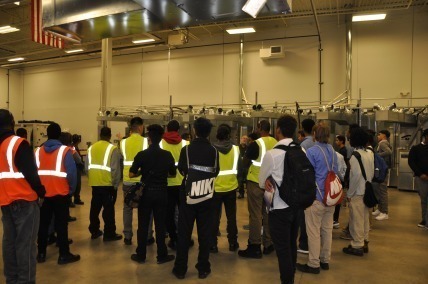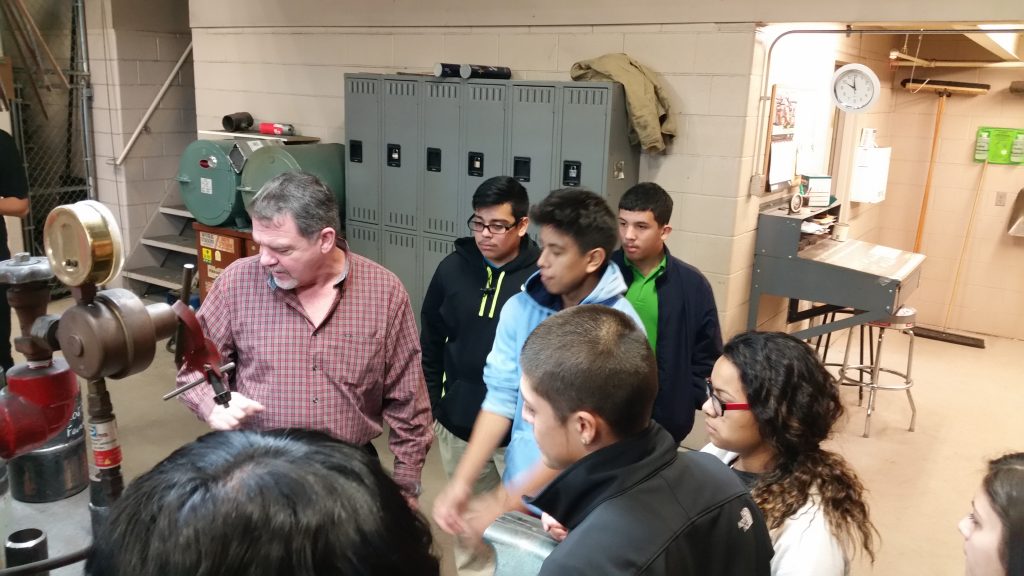A January Forbes.com article discusses the advantages of apprenticeships and other vocational and technical education options.
The article, written by Nicholas Wyman, points out that roughly 13 million Americans with college degrees are unemployed and countless more are either underemployed or have given up trying to find a job.

Cleveland area high school and college students learn about the benefits of apprenticeships at Sheet Metal Workers Local 33 Training Center in Cleveland.Meanwhile, the construction and manufacturing industries continue to seek individuals to fill positions being left open by the retirement of Baby Boomers.
Wyman writes “the economic vitality of our companies and our communities relies on a large population of vocationally skilled people; proficient automotive technicians and engineers, welders, electricians, plumbers, chefs, laboratory technicians, health workers, and much more.”
Positions with most construction trade unions in Ohio are available to individuals with experience in the construction industry or to those willing to work as apprentices and earn while they learn their trade.
The unemployment rate for college graduates grew by 1.5 percent in 2014, while the unemployment rate for those in their 20s, with at least a bachelor’s degree, climbed to 12.4 percent.
The high unemployment rate leaves many college graduates with a difficult time finding a way to pay their student debt, which averages out to $30,000 per graduate. Nationwide, the total amount of student loan debt is $1.2 trillion.
A report from Georgetown University predicts that nearly two-thirds of available jobs in 2020 will not require a bachelor’s degree or higher. Instead, roughly half of those jobs will require vocational training such as an apprenticeship or an associate’s degree.

UA Local 50 is one of many Building Trade Locals working to educate high school students about the benefits of a building trades apprenticeship.
At no cost to taxpayers, ACT Ohio member unions, through their Joint Apprentice Training Centers (JATCs), invest millions of dollars each year in educating men and women in the construction trades. By becoming apprentices, these individuals earn while they learn, meaning they receive valuable on-the-job experience working with journeymen while also receiving classroom instruction at designated times throughout the year. Individuals accepted into apprenticeships with our affiliated members are eligible to receive health insurance and pension benefits.
Upon completing their apprenticeship, building trade apprentices become skilled journeymen, receiving journeymen’s wages and working in an in-demand career that offers a pathway to live a middle class lifestyle.




